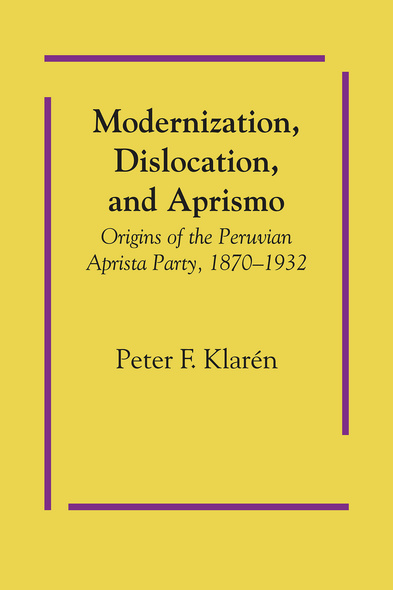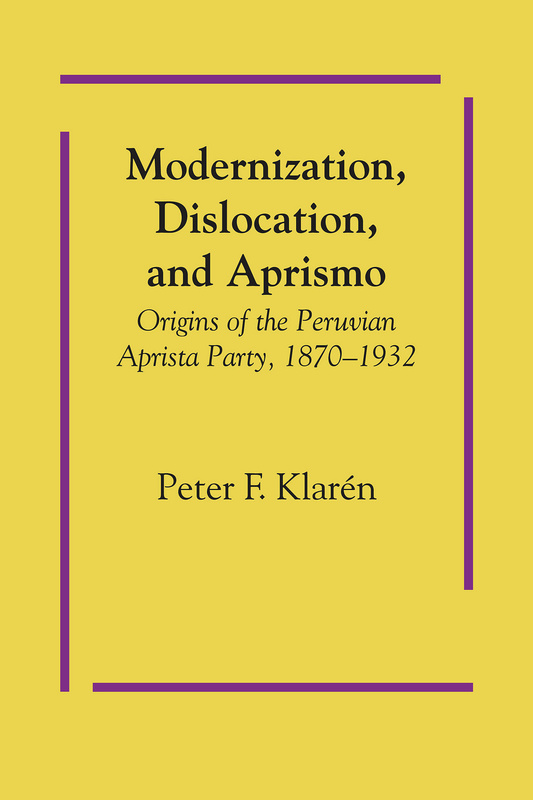Modernization, Dislocation, and Aprismo
Origins of the Peruvian Aprista Party, 1870-1932
Since its founding in 1930 the Peruvian Aprista party (APRA) has occupied a place of signal importance in the Peruvian political spectrum, and it is one of the most important political parties to appear in twentieth-century Latin America. Modernization, Dislocation, and Aprismo is the first major analysis of the social and political bases of the Aprista movement. Previous studies of APRA had been chiefly descriptive in nature and did not utilize modern social science approaches in analyzing the movement.
Peter F. Klarén’s major thesis is that APRA emerged in the 1930s as a direct political response to the far-reaching dislocative impact of modernization within the Peruvian sugar industry, a process that unfolded over a period of about four decades beginning in the 1890s and that substantially upset and transformed the traditional structure of society along the north coast.
Jolted by the effects of modernization, elements of the old middle and lower sectors grew increasingly hostile to the existing order. Joined by the new proletariat that was beginning to voice its collective grievances by means of the unionization process, this large, alienated segment of northern society responded overwhelmingly in 1931 to the reformist appeal of the new Aprista party. APRA, many of whose leaders were products of this environment, best expressed politically the general mood of alienation and rebellion of the area’s discontented. The eruption of the bloody and abortive Trujillo Revolution of 1932 is considered as the culmination of this process of social and economic dislocation.
In addition to presenting a major new interpretation of the origins of the Aprista movement, this study places the Aprista party in the larger Latin American context by comparing APRA with other political movements in Mexico, Brazil, Argentina, and Cuba that were responding to similar modernization phenomena.
This study is based not only on a large body of official party literature and local newspapers for the period, but also on the newly discovered records of the Archivo de la Cámara de Comercio, Agricultura e Industria of the Department of La Libertad for the years 1904–1932.
- Introduction
- 1. The Modernization of the Sugar Industry and the Concentration of Land in the Chicama Valley
- 2. The Rise of a Rural Proletariat
- 3. Plantation vs. Pequeño Agricultor: The Decline of the Small Farmer
- 4. Urban Decline and the Commercial Crisis of the 1920’s
- 5. The Trujillo Bohemia and Víctor Raúl Haya de la Torre: The Rise of the Reformers
- 6. Haya in Exile and the Genesis of APRA: 1923–1930
- 7. The Political Response: From Elections to Revolution, 1931–1932
- 8. APRA and the Politics of Sugar
- Glossary
- Bibliography
- Index





